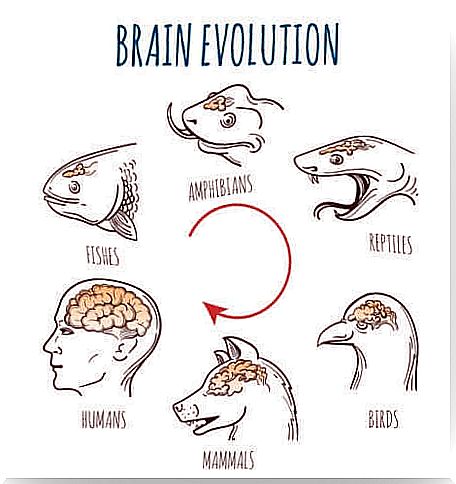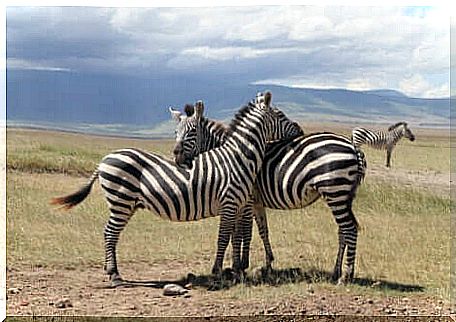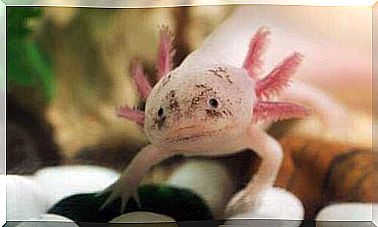Do Animals Have A Conscience?

Consciousness is one of the great questions concerning the mind. We can all talk about it and even formulate a rough definition of it; we all agree, on the other hand, that it exists and that we have one. What can we say, though, about other living beings? Do animals have a conscience?
Whether an animal is aware of what is happening around it, and even of itself, is a question that has long been arousing human curiosity. Over the years, the extension of the term “consciousness” has gradually expanded its scope of reference, to include animal species that we would never have thought of.
What are we referring to by the term “conscience”?
Consciousness is defined as the ability not only to process stimuli that come from the environment, but also to have a subjective experience of them. In other words, a conscious being does not just see an object, but also knows that he is observing it.
Neuroscience, examining the brain for answers, has discovered a neurological basis common to most animals, which involves the ability to feel and react emotionally to stimuli.
For example, some comparative studies between mammals and birds indicate that both of them would have the necessary mechanisms to possess a subjective awareness of their own experience; consequently, it would not be an exclusive feature of mammals.
So much so that, during the Francis Crick Memorial Conference (held at the University of Cambridge in 2003), most neuroscientists signed a declaration stating that non-human animals are endowed with conscience.

Is animal consciousness comparable to human consciousness?
The first studies on animal consciousness were based on tests carried out on children. The mirror test, devised by Gordon Gallup, is one of the most famous. The experiment involved producing a stain on the animal, which the animal itself was able to see only by looking in the mirror.
The animals that passed the test (mainly great apes) exhibited self-recognition behaviors. In fact, they tried to remove the stain, observed it from different perspectives or made faces.
Consciousness in animals: the adapted mirror test
The mirror test was the most used, until its critics posed the following problem: Do all species perceive the world the same way we do? The answer is no.
Using an example, to interact with the surrounding environment, a dog is much more dependent on smell than a human being, just as a bird of prey bases almost all its perception on the sense of sight, which is much more acute than our.
These are some of the species in which the existence of a consciousness has been demonstrated:
- Dogs. Alexandra Horowitz modified the mirror test to fit canine smell and found that dogs spent much more time smelling other people’s odors than their own.
- Crows. Most birds base their experience on sight, just like us. There are videos showing how some species manage to pass the mirror test.
- Dolphins. Known for their great intelligence, dolphins were among the first species to pass the mirror test.
- Elephants. Just like dolphins, these sensitive and complex mammals passed the mirror test with almost no difficulty.
- Fish. Although the results are still open to interpretation, the cleaner fish ( Labroides dimidiatus ) exhibited atypical behaviors in front of the mirror that had not been observed during social interactions with other members of the same species.
Modifying the mirror test gave us the key we humans needed: it is not possible to isolate the perception of all species using the same model. This conclusion has brought about an important advance in ethology, providing the demonstration that human superiority on our planet rests on increasingly fragile foundations.

In conclusion, do animals have a conscience?
All the evidence points to an affirmative answer. Groups that fight for the respect of animal rights have paved this path thanks to studies showing that non-human animals can feel pain, thus laying the groundwork for a rational justification of empathy towards them.
The journey, however, does not stop there. Not only has it been shown that animals have a conscience, but also that many of them display behaviors and emotions very similar to ours (such as a sense of justice or even an understanding of death), to the point that it is impossible to deny that they can be sentient. just like us.









